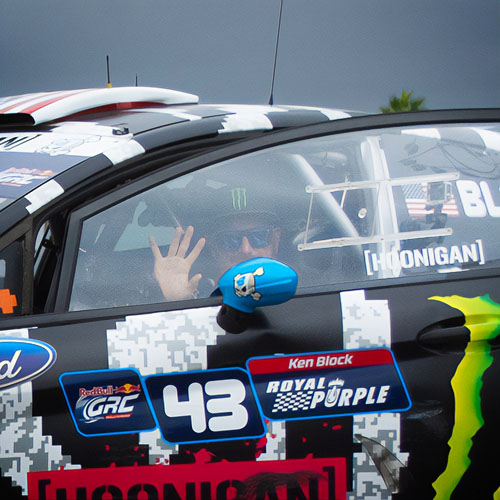Turns out yesterday’s sport wasn’t always a utopia of civility and sweetness either.
The Cricketer Who Beat Up A Selector
Even with the civilized game of Cricket, people often lament that in the modern age an element of nastiness has crept into the world of sport, that civility and gentility have been lost from the realm of athletic pursuits — thanks to the advance of all-encompassing professionalism and win-at-all-costs mentality.
This may be true, but it would be a mistake to think either that today’s world is entirely devoid of good sportsmanship, or yesterday’s was a utopia of sweetness and light.
Though recent years have seen plenty of controversy around the behavior of the Australian cricket team, at no point have the national captain and a member of the selection panel engaged in a brutal fistfight in the Cricket Australia boardroom.
In more distant times, however…
Clem Hill was one of the world’s greatest batsmen and, along with Victor Trumper, the best Australia produced in the pre-World War One period. A short, stocky left-hander, he was a fearsome presence at the crease, thumping attacks around the world — though because this was the early 20th century, that really only meant three countries.
Although Hill was a brilliant batsman, he met with less success as a captain, and the failure of the Australian team under his stewardship led to a premature end to his Test career.
In the summer of 1911-12, Hill’s Australians were hammered by Johnny Douglas’s Englishmen; brilliant bowlers Sydney Barnes and Frank Foster went scything down the baggy green batting order like corn. As dissatisfaction with the team’s performance grew, so did tension between Australian players and the recently established Board of Control.
The board was threatening to take away the players’ right to choose their own manager for the upcoming 1912 tour of England. Hill headed a band of senior players who declared an intention to pull out of the tour if their preferred manager wasn’t chosen.
Against this tense background, the Australian selection committee met on February 3, 1912, in Sydney, to choose the team for the Fourth Test. Present were Hill, fellow selector Frank Iredale, cricket board secretary Sydney Smith and one more selector: Peter McAlister. Between Hill and McAlister there was no love lost. They had clashed when McAlister was a player, and again during the current series, when Hill suggested picking Charlie Macartney, and McAlister responded by saying that he didn’t think Macartney should be selected, but if he was, Hill should drop himself.
The meeting began, with rancor in the air and both men eager for confrontation. McAlister kicked things off by telling Hill that his captaincy had left much to be desired. Hill shot back that when McAlister had captained sides, he’d been hot garbage, and that on the last tour of England, star all-rounder Warwick Armstrong had refused to play under him.
McAlister rose to the bait with enthusiastic fury. “I am a better captain,” he snapped, “than Trumper, Armstrong and yourself put together. You are the worst captain I have ever seen.”
This ratcheted the temperature up a few more degrees, and Hill warned McAlister he best watch his mouth.
But watch his mouth McAlister determinedly would not, and he repeated, “You. Are. The Worst. Captain. I have ever seen.”
The Rubicon was crossed. Hill was a proud man, as well as possessing considerable upper body strength, and both traits came into play as he belted his fellow selector one across the chops. There followed 10 minutes of mayhem, in which the former teammates wrestled each other up and down the boardroom. Numerous punches were thrown, with blood spattering the room, the fighters, and the appalled onlookers Iredale and Smith.
In the end, McAlister was left lying on the floor, claret flowing freely from various points, with the furious Australian skipper standing over him. Hill didn’t have a mark on him, proving whatever their respective merits as captain, he was definitely the better boxer.
Hill won the fight but lost big-time in the long run. Declaring himself unable to work with McAlister, he resigned as selector and captain. The Fifth Test of the 1911-12 series would be his last: umpire Bob Crockett reported tears in the great man’s eyes as he came out to bat. Invited to tour England, Hill and five of his teammates declined. And that was that. One of Australian cricket’s great careers ended in the most acrimonious and depressing of circumstances.
On the plus side, Clem Hill goes down as the only Australian cricketer to ever beat the pulp out of a selector, and for that alone he will always be a hero to the generations who followed him.
Full disclosure, we have no idea why a fist fight between a couple of sports guys — presuming cricket counts — from 100 years ago seemed worth page space in the magazine. Maybe everyone acts much more civilized down under. If we tried to document all our fights amongst sports figures, a great many people would spend the majority of their time doing nothing else at all. Of course had they been more concerned with Charlie McCarthy instead of Charlie “Macartney,” it all would have turned out much differently. One cannot really get seriously upset with a doll — well, Chucky aside. Humor could save the world. That’s our theory.






















